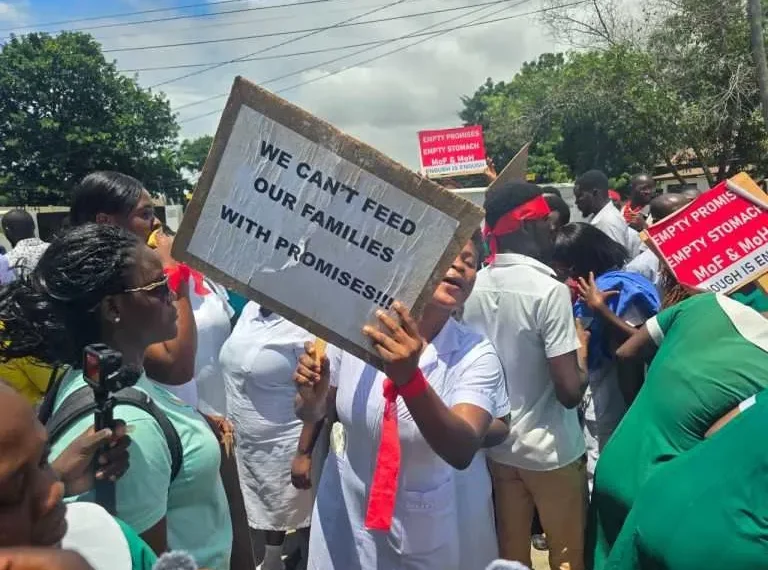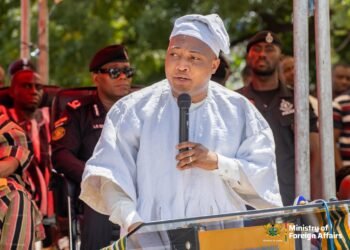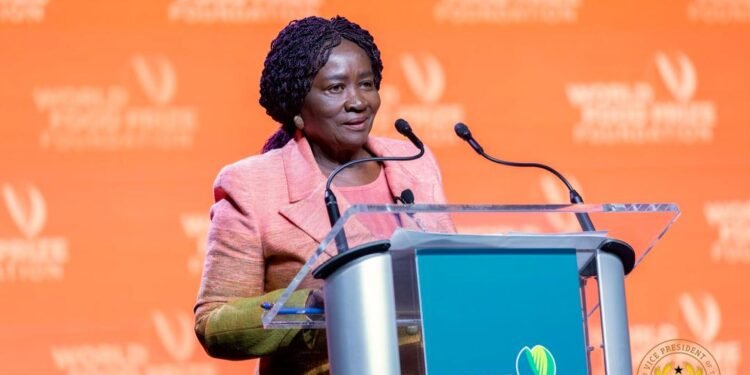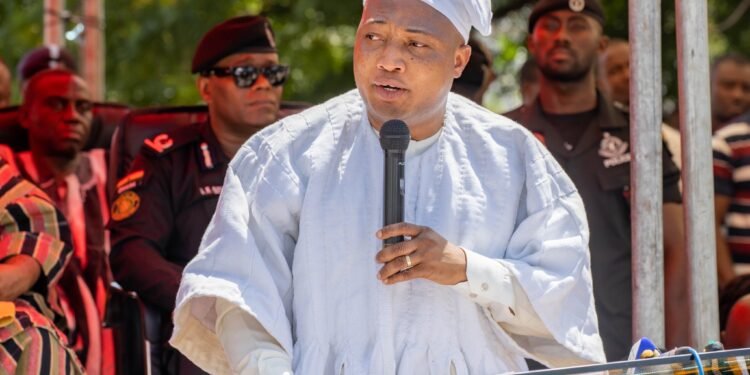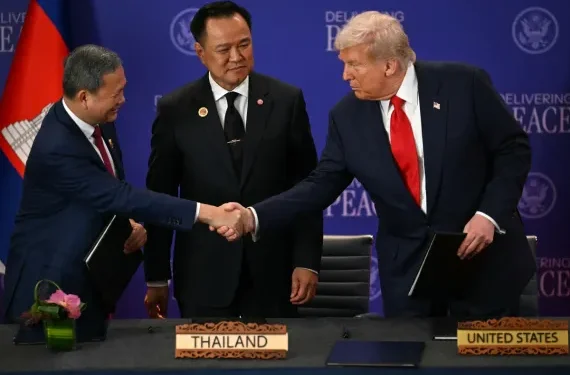The unresolved salary crisis for newly recruited public sector workers has ignited fierce criticism from prominent voices in civil society, journalism, and the legal fraternity, with calls for urgent reforms to protect the nation’s frontline workforce.
The failure to pay teachers, nurses, and junior doctors for several months has been described by critics not as a lapse, but as a betrayal sustained by design.
Renowned journalist and private legal practitioner Samson Lardy Anyenini painted a grim picture of what he termed a “broken system deliberately engineered for fraud.”
In a searing critique, he lamented the long-standing culture of indifference to the plight of workers who form the backbone of the country’s social and health services. “This is a broken system by design. It is built to bleed the honest worker,” Anyenini declared.
Drawing on his observations spanning three decades, he accused successive governments of maintaining a system that thrives on inefficiency while comfortably cushioning well-paid officials.
“For three decades, I’ve watched a system deliberately left broken, engineered for fraud, sustained by fat-salaried officials who’ve never missed a paycheck. Not-fit-for-purpose, yet padded with perks”.
Samson Lardy Anyenini
Neglect of Essential Workers
What is most appalling, according to him, is the contrasting neglect of essential workers such as teachers, nurses, and junior doctors who are left unpaid for 10 months or more, even as ghost names continue to draw salaries without interruption.
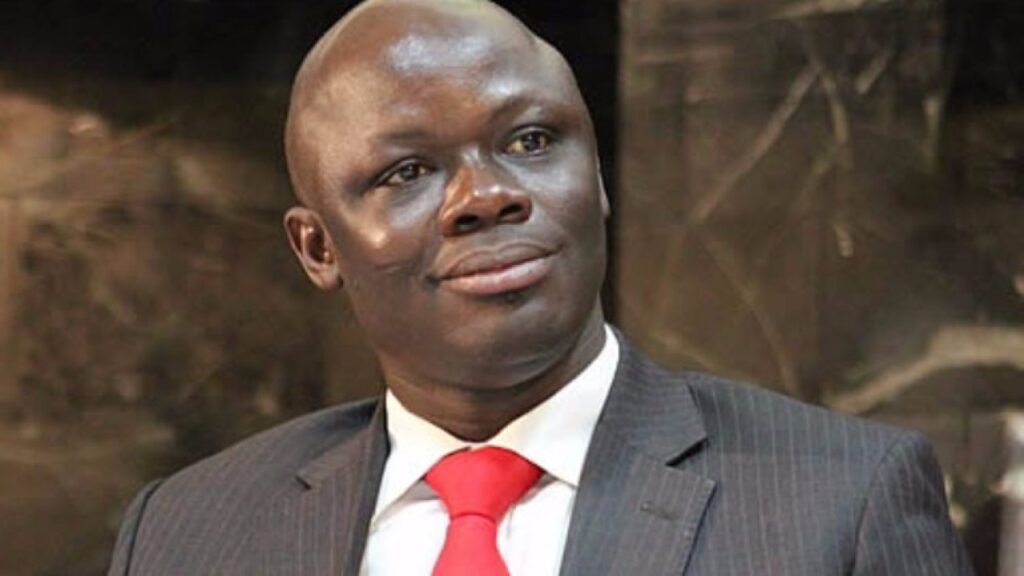
Anyenini argued that in functional democracies, governments that failed to honor workers’ salaries would be held to account and made to compensate victims for delayed payments. “But here, they’re guilted into endurance, punished for patriotism,” he decried.
For him, the recurring nature of these payment delays is no accident but a carefully sustained betrayal. “This isn’t dysfunction. It’s design. This isn’t delay. It’s betrayal. Why are these issues that cannot be fixed in minutes or a day? Shame,” he concluded.
Passive Citizens in the Face of Recurring Crisis
Sharing similar sentiments, legal practitioner and activist Timothy Donkor questioned the priorities of Ghana’s political class and the passivity of its citizens in the face of recurring crises. He juxtaposed the government’s ability to pay student allowances with its failure to meet basic wage obligations to its workforce.
“A country that pays allowances for students to go to school but fails to pay workers’ salaries. And each year, these same citizens queue to renew the mandate of government? What for?”.
Timothy Donkor
For him, the persistence of the crisis points to the absence of bold legislative reforms that could safeguard workers against the whims of financial clearance processes and political expediency.

He argued that Parliament should be compelled to enact a law that makes it illegal for any wage to be delayed beyond two weeks. “You won’t occupy Parliament House to pass a wage bill that makes it illegal for any wage to be delayed for more than two weeks?” he charged.
In his view, the current situation reflects a democracy that is faltering not just because of callous leadership but also due to passive citizens who have failed to demand systemic accountability. “The democracy is failing because leaders are callous and citizens are passive,” he wrote.
The criticisms come against the backdrop of the new administration’s struggle to resolve salary arrears for thousands of newly recruited teachers, nurses, and junior doctors.
Reports indicate that some teachers have gone without pay for over 13 months, while nurses and junior doctors have endured nearly 10 months of unpaid work. The Ministry of Finance, the Ministry of Education, and the Ministry of Health have all acknowledged the situation as unacceptable, with senior officials expressing regret over the hardship being endured.
Deputy Finance Minister Thoomas Ampem Nyarkoh, Education Minister Haruna Iddrisu, and the Health Minister have each explained that the current crisis stems from the failure of the previous administration to secure financial clearance before making the recruitments.

This, they argue, has tied the hands of the present government in addressing the arrears swiftly. Nonetheless, they have assured the affected workers that efforts are underway to regularize the situation and release payments as soon as possible.
Despite these assurances, public frustration continues to mount, with critics insisting that structural reforms are long overdue. For many, the recurring crisis reveals a governance model that prioritizes political convenience over human dignity, with the burden of inefficiency borne disproportionately by frontline professionals.
For Ghana’s teachers, nurses, and doctors—who despite their unpaid months remain at post—it is a reminder that their patriotism is being tested in a system where endurance is punished, and betrayal is institutionalized.
READ ALSO: Ecobank Ghana Soars 10% as NewGold ETF Stumbles in GSE’s Penultimate Trading Week



